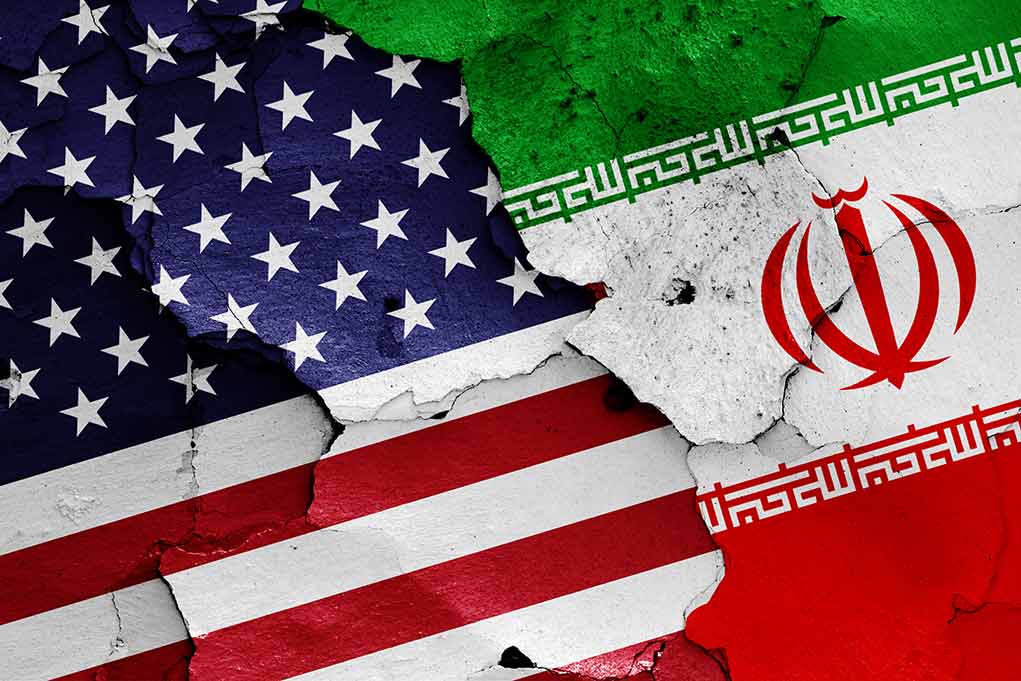
U.S. airstrikes on Iranian nuclear facilities have triggered a nationwide security alert as the Department of Homeland Security warns that pro-Iranian hackers and terrorists could target American soil in retaliation.
Key Takeaways
- DHS has issued a national security bulletin effective from June 22 to September 22, 2025, warning of a “heightened threat environment” following U.S. airstrikes on Iranian nuclear sites
- Iranian-backed cyber actors are likely to conduct attacks against U.S. networks, potentially targeting critical infrastructure, energy, and financial sectors
- Iran maintains a commitment to target U.S. government officials it holds responsible for the January 2020 killing of an Iranian military commander
- The risk of domestic terrorism may increase if Iranian leadership issues religious rulings calling for retaliatory violence
- Recent anti-Semitic and anti-Israel attacks raise concerns that the Iran conflict could motivate similar extremist violence
DHS Issues Critical Warning Following U.S. Military Action
The Department of Homeland Security has issued an urgent national terrorism advisory bulletin warning Americans about potential retaliatory threats following President Trump’s decision to strike Iranian nuclear facilities. The alert, which remains in effect until September 22, 2025, details specific concerns about cyber warfare, terrorist plots, and domestic extremism that could emerge as Iran responds to the U.S. military action. Major cities across America are already increasing security at potential targets, including government buildings, Jewish centers, and critical infrastructure.
The DHS bulletin explicitly states the connection between the recent military operations and increased domestic threat levels. “The ongoing Iran conflict is causing a heightened threat environment in the United States. Low-level cyberattacks against U.S. networks by pro-Iranian hacktivists are likely, and cyber actors affiliated with the Iranian government may conduct attacks against U.S. networks,” according to the DHS bulletin.
Iranian Vendetta Against U.S. Officials Intensifies
The security alert reveals that Iranian authorities continue to harbor intentions of targeting specific American officials for assassination. “Iran also has a long-standing commitment to target U.S. Government officials it views as responsible for the death of an Iranian military commander killed in January 2020,” the DHS bulletin warns. This persistent threat against American leadership demonstrates Iran’s long-term commitment to retaliation, regardless of changes in U.S. administrations. Since 2020, U.S. law enforcement has disrupted multiple Iranian-backed plots targeting American officials.
“If You See Something, Say Something®,” stated DHS.
The bulletin further cautions that the likelihood of violence inside the United States could dramatically increase if Iranian religious leaders issue specific calls for attacks. Such religious rulings have historically mobilized extremists worldwide to carry out acts of terrorism. The DHS emphasizes the importance of public vigilance, urging Americans to report suspicious activity to local law enforcement or call 911 in emergencies as part of the Nationwide Suspicious Activity Reporting Initiative.
Cyber Warfare Targets Critical U.S. Infrastructure
Cybersecurity experts warn that Iran’s retaliation will likely include sophisticated digital attacks aimed at disrupting American daily life. The Islamic Republic has developed advanced cyber capabilities specifically designed to target vulnerable U.S. systems. Security professionals are particularly concerned about attacks against energy facilities, financial networks, and transportation systems that could cause widespread disruption while providing Iran with plausible deniability.
“Iran might first target energy and finance for maximum disruption — public pain points that cripple daily life,” said Theresa Payton, who served as White House chief information officer under former President George W. Bush, told The Washington Times.
The DHS’s Cybersecurity and Infrastructure Security Agency (CISA) is working directly with critical infrastructure operators to harden defenses against potential Iranian attacks. Citizens are encouraged to maintain updated security software on personal devices and remain alert for phishing attempts that could compromise personal data or provide entry points for larger network intrusions. Business leaders are advised to implement recommended cybersecurity best practices and coordinate with federal agencies for additional protection guidance.
Rising Domestic Terrorism Concerns Linked to Middle East Conflict
The alert specifically mentions that recent domestic terrorist attacks in the United States have been motivated by anti-Semitic or anti-Israel sentiment, raising fears that escalating tensions between Iran, Israel, and the United States could inspire more such violence. Extremists could target locations perceived as Jewish, pro-Israel, or connected to the U.S. government or military. Law enforcement agencies nationwide are increasing security at synagogues, Jewish community centers, and Israeli diplomatic facilities in response to these threats.
President Trump’s decision to strike Iranian nuclear facilities came after repeated warnings about the Islamic Republic’s advancing nuclear weapons program. The administration has emphasized that these strikes were specifically targeted at nuclear development sites rather than civilian infrastructure. U.S. military forces throughout the Middle East have been placed on heightened alert status as officials anticipate potential Iranian retaliation against American personnel or facilities in the region.

















